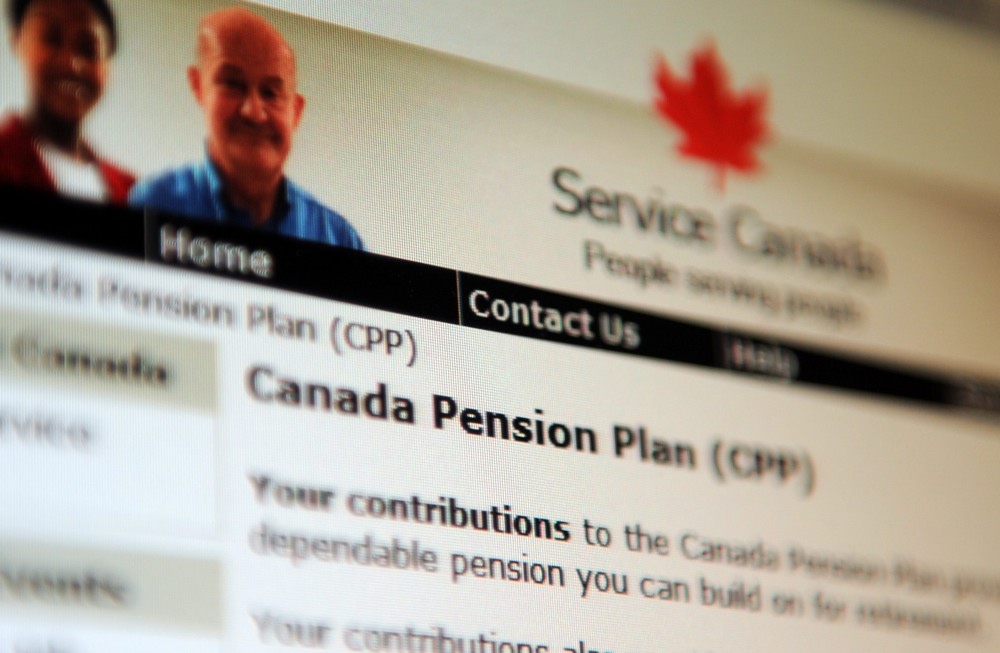Boosting the CPP would ‘bring economic benefits’
Documents hint at how, inside Finance, the prospect of raising CPP premiums to pay for enriched benefits isn’t viewed so negatively
Share

Early last December, a week or so before the federal and provincial finance ministers were scheduled to meet to discuss proposals for expanding the Canada Pension Plan, I figured I’d better brush up on my understanding of the CPP debate.
I started by reading the latest from the feds—an op-ed that had been published on Dec. 5 by Kevin Sorenson, the minister of state for finance, in the National Post, under the headline, “CPP boost would kill jobs.” Sorenson said the expansion of the CPP that was being energetically proposed by several provinces and the NDP would cost Canada between 17,000 and 50,000 jobs and “stunt economic growth.”
Naturally, I asked his office to explain. The answers, which eventually came from the Department of Finance, were not as precise as I would have liked. But they did provide one key detail: in forecasting the job losses that would result from hiking the CPP premiums paid by employers and employees, the department’s economic modeling experts had assumed any increase would be “fully implemented in one year, without prior notification.”
That struck me as odd. The most recent increase in CPP premiums—a doubling of the rate—had been carefully phased in over six years from 1997 to 2003, and was widely praised as a successful reform that restored the CPP to a solid financial footing. Why would any future expansion be implemented as a sudden, shock maneuver? Experts I called, not surprisingly, scoffed at this scenario as ridiculous. For its part, the finance department told me that supposing a sudden increase, imposed by stealth, was merely a “simplifying assumption” in their modeling.
It seemed possible that the federal government—having opted to oppose the bigger CPP idea—had decided to cast it in the worst imaginable light. Still, I guessed that Finance bureaucrats must harbour a more nuanced view than was being conveyed to me. After all, as recently as 2010, Jim Flaherty, who resigned as finance minister earlier this month, was publicly in favour of expanding the CPP. It stood to reason that he must have been given some expert support for that position, even though he later drifted away from it.
Today, I was given documents that suggest how, among Finance’s own policy analysts, the prospect of raising CPP premiums to pay for enriched benefits is indeed viewed more positively than we’ve been led to believe. These documents were obtained by the Canadian Labour Congress, which supports expanding the CPP. The CLC offered to let me have a look because my name appears in them. They are mostly repetitive, dry emails circulated among Finance officials last December when they were figuring out how to handle media questions on the CPP issue.
A couple of emails from Dec. 10 stand out for me, though. One is a draft of the answers I was later given to a series of questions I had put to the department. I notice that, in the draft obtained by the CLC, the answer to my question about how long the department expects job losses caused by a CPP premium increase to persist has been redacted, or blacked out.
But another “draft Q & A,” emailed that same day by a senior official in the department’s economic studies and policy analysis section to another bureaucrat, proposes this answer to the very similar question of whether any job losses attributed to a CPP hike would be permanent: “In the long run, expanding the CPP would bring economic benefits. Higher savings will lead to higher income in the future and higher consumption possibilities for seniors.”
Funny, they didn’t tell me that. It’s pretty much what advocates of expanding the CPP have been arguing all along—that too many Canadians, especially those who don’t have good company pensions, won’t have saved enough to live well in retirement, and so it would be good for them, and also for Canada’s future economy as a whole, if they could expect a little more in CPP benefits.
But nothing like that positive message, nothing approaching it, was hinted at in the answers I got that very week from the finance department. Instead, I received replies that were unremittingly negative about the economic consequences of boosting the CPP.
And on Dec. 16, Flaherty, at that key meeting with provincial finance ministers at Meech Lake, Que., shut down any discussion of CPP expansion. The session broke up in an atmosphere of confusion and bitterness on the part of some provincial finance ministers. When this vital policy file might be seriously raised again at the national level is anybody’s guess.